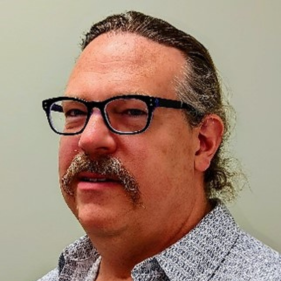Community-based research and healthy aging: Q&A with David Johnson

June 3, 2024
The Good Life program for healthy aging encourages positive lifestyle change in older adult Californians. Importantly, The Good Life is not an “ivory tower” research project. Through outreach and support for the local community, the program meets people where they are.
Led by David Johnson, a gerontologist at UC Davis Health, the Good Life supports the healthy development and personal growth communities of color in and around Oakland, CA. Johnson takes a community-engaged approach to his research. This means members of the community are equal partners and collaborators in the research process.
In this Q&A, Johnson discusses The Good Life program, community-engaged research and how he collaborates with community members. Johnson is a faculty affiliate at the UC Davis Center for Healthcare Policy and Research (CHPR), where the Good Life program is housed. The CHPR team working on the Good Life includes Praise Adesida, Fatima Chavez and Shanette Merrick.
Can you tell us about the Good Life program and its goals?
During the pandemic, my project coordinator Shanette Merrick and I transformed an in-person lifestyle intervention into an online social support program for older adults. Due to the pressing mental health needs of the Black American older adult community in Oakland, the program quickly expanded. The Good Life aims to provide social support to Black and Latino older adults in California, helping them make healthy lifestyle changes. It includes cooking classes for healthy eating and a variety of exercise classes that older adults can participate in from their homes, while also receiving support from a community of peers with similar interests.
How does the Good Life incorporate community-based approaches to research?
The Good Life deeply integrates community-based principles, primarily through our robust network of community partners. Our entire staff is recruited from the local Black and Latino communities we serve, ensuring that our online cultural representation is congruent with these communities. This approach of cultural congruence means our health coaches not only speak the local language but also share the cultural experiences of our participants. This creates a familiar and predictable environment that enhances inclusivity and effectiveness.
Why is community engagement important, and does it help improve outcomes in your research?
Community engagement is crucial because it ensures the research and interventions are tailored to the specific needs and contexts of the populations served, which can significantly enhance the effectiveness and sustainability of health outcomes.
The Good Life deeply integrates community-based principles, primarily through our robust network of community partners.—David Johnson, a professor of neurology at UC Davis Health.
What are some examples of collaboration with community members?
One notable collaboration is with the Alameda Food Bank. We synchronize Shanette and Irma Hernandez's cooking shows with food bank deliveries. Additionally, our older adults have the option to pick up these deliveries at our centralized facilities in East Oakland, receive recipes, and learn about upcoming cooking shows. This integration of nutrition education with food delivery at a local level fosters a supportive network for older Black Americans in Oakland and surrounding areas of Alameda County.
What do you find to be the most rewarding part of your research?
Personally, this has been the most rewarding work of my career. Unlike my previous focus on diagnostics and empirical support for lifestyle interventions, this is my first venture into public health and the practical implementation of these interventions in the community. The relationships built through this work have profoundly enriched both my professional and personal life, teaching me invaluable lessons about living in and supporting a diverse community.
The Center for Healthcare Policy and Research’s mission is to facilitate research, promote education, and inform policy about health and health care. The goal is to improve the health of the public by contributing new knowledge about access, delivery, cost, quality and outcomes related to health care and providing rigorous evidence to policymakers and other stakeholders. CHPR executes its mission through interdisciplinary and collaborative research; education and career development; and research synthesis and dissemination.

